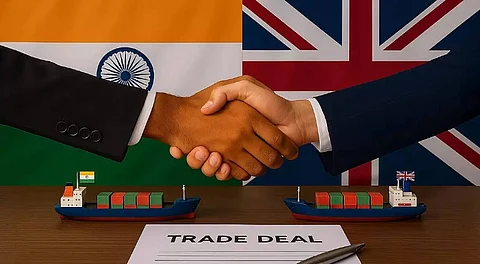

New Delhi | India's exports of generic medicines and medical devices, such as X-ray systems and surgical instruments, will get a major boost with Britain agreeing on zero duty under a free trade agreement.
This is part of the free trade agreement inked between the UK and India on Thursday in London in the presence of Prime Minister Narendra Modi and UK premier Keir Starmer.
"Significant share of medical devices like surgical instruments, diagnostic equipments, ECG machines, X-Ray systems will not attract any duty," according to a commerce ministry official.
This will reduce costs for Indian med-tech companies and make their products more competitive in the UK market, he added.
"Given the UK's shift away from reliance on Chinese imports post-Brexit and COVID-19, Indian manufacturers are poised to emerge as a favoured, cost-effective alternative, especially with zero-duty pricing for medical devices," the official stated.
The ministry stated that the zero tariff provisions under the FTA are expected to significantly enhance the competitiveness of Indian generics in the UK market, which remains India's largest pharmaceutical export destination in Europe.
India exports USD 23.31 billion globally and the UK imports nearly USD 30 billion, but Indian pharma accounts for under USD 1 billion, indicating significant headroom for growth.
The pharma sector has only 56 tariff lines, which is just 0.6 per cent of the total, the document stated.
Despite its relatively small representation in terms of tariff lines, the pharmaceutical sector typically holds high value and strategic importance, especially in global trade, it added.
The Indian pharmaceutical industry is the world's third largest by volume and 14th largest in terms of value.
Indian pharmaceutical exports rose 10 per cent year-on-year to USD 30.5 billion in FY 2024-25.
Over the last 30 years, the industry has become a leader in the manufacture of high-quality generic drugs at competitive prices.
India is the largest supplier of generic medicines with a 20 per cent share in the global supply by manufacturing 60,000 different generic brands across 60 therapeutic categories.
Indian products are shipped to over 200 countries around the globe, with Japan, Australia, West Europe and the US as the main destinations.
The current market size of the medical devices sector in India is estimated to be USD 11 billion and expected to reach USD 50 billion by 2030.
